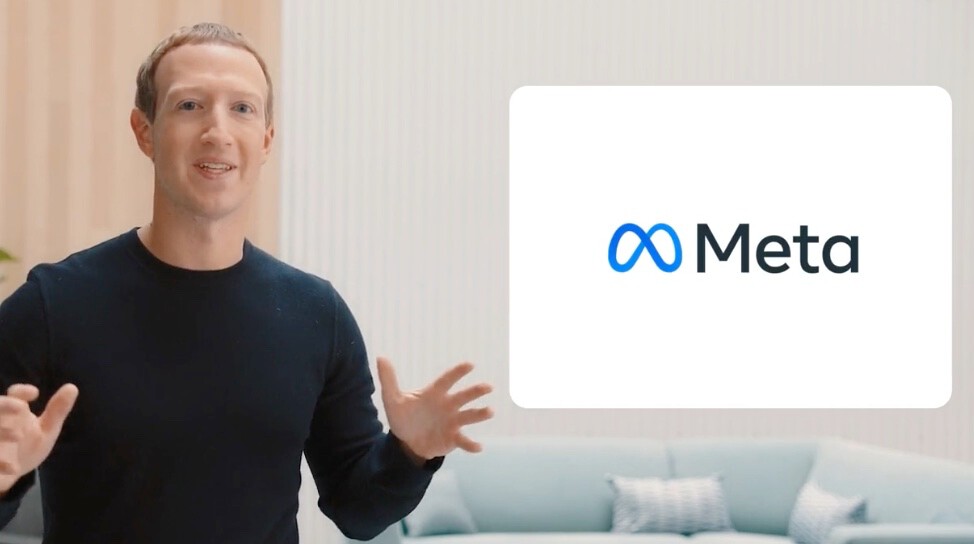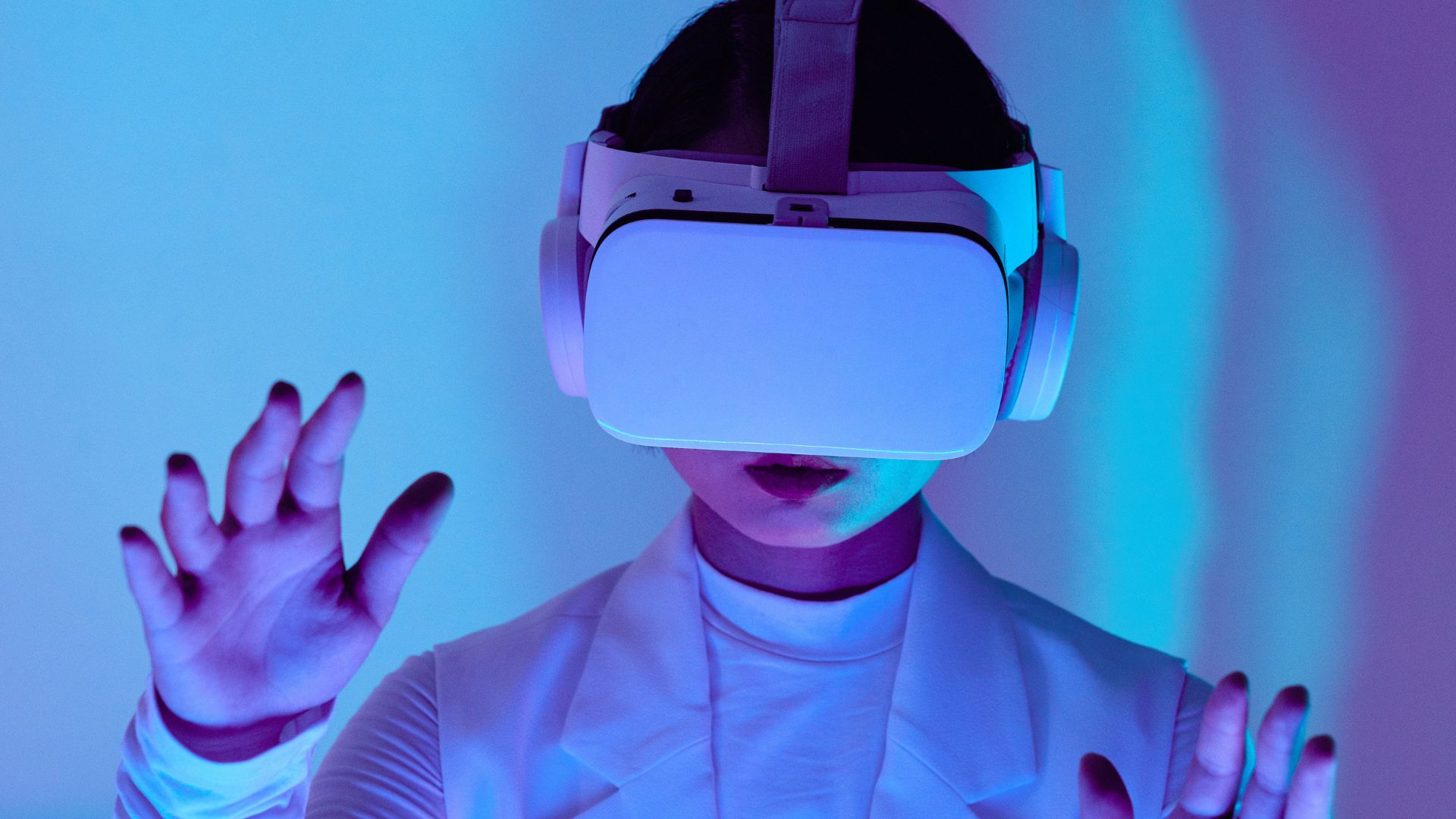If you have reached this article you may well know what the metaverse is, or if you have only heard of it, you would like to know more about this “new world” and what use it could have in rehabilitation and physiotherapy.
To the surprise of many, this term has been with us for thirty years, since 1992 when the writer Neal Stephenson first used it in his science fiction novel Snow Crash. For this reason, many have dubbed him the ‘father of the metaverse’. However, it did not become popular until October 2021, when Mark Zuckerberg, CEO and founder of Facebook, announced the new direction of his company, renaming it Meta. This decision represents a big change for a project that has been years in the making and whose central concept is the metaverse.
What is Meta and how does it affect the adaptation of the metaverse in society?
Meta is a company that “creates technology to connect people”, according to Zuckeberg’s statements in his world presentation, and whose base he claims will be the metaverse. In this way, the creator of Facebook aims to leave behind the idea of the mobile internet, in front of screens, with the purpose of developing a space where people can interact in real time, with different avatars and scenarios, no matter where you are on the planet.

The main characteristic of the metaverse is the fusion between the virtual world and the physical world. We are talking about a different technology to what we are used to so far, where the real world is replaced by the virtual one: it is an immersive experiential activity in which we are teleported to another place and in a different body (our avatar, a form of representation personalised by ourselves), with processes of brain-to-brain tuning and synchrony that encourage us to develop different emotions and states. In the metaverse, virtual worlds, augmented reality, are integrated with the dynamics of video games.
Metaverse, rehabilitation and physiotherapy
Now, what applications could we develop in the metaverse? Endless. But today we are going to talk about one in particular, linked to telemedicine and more specifically to remote rehabilitation and physiotherapy, which allows patients to interact easily in therapeutic treatments remotely from anywhere at any time of the week. All this thanks to this integration, which we have been talking about in this article, in which the dynamics of video games or gamification developed in a virtual world and linked to augmented reality (AR) would make this new service and business model at the service of society possible.
How can the metaverse help us?
Every day we see problems that make it difficult for patients to attend their medical centres where they must periodically go for therapy: lack of time, too long distances, mobility problems to get to the centre, saturation of consultations, waiting lists due to lack of personnel, etc. However, therapy and rehabilitation processes do not necessarily have to take place in a physical place where professional and patient meet. And although it is advisable for the first sessions to be face-to-face, where specialist and patient get to know each other, and the latter understands the rehabilitation process as well as the technique to be applied, most sessions could be done from wherever the patient feels most comfortable thanks to technology and the metaverse (always with the supervision of the therapist).
Exergames
At Furious Koalas we have spent years developing different software prototypes that allow remote monitoring of rehabilitation exercises through exergames.
One of the ones that is currently in use and evolving is Virtual Physio, a game-based Virtual Reality system. The patient is represented by an avatar that, through its own movement in the real world and following different virtual trajectories, completes the different routines, which are remotely supervised by the therapist.
The system rewards the user by increasing his or her score when a repetition is completed correctly. In addition, it includes tutorials that allow the user to check how to perform the rehabilitation exercise.
Features of Virtual Physio
The possibilities offered by this FK prototype are enormous:
- It is a system oriented towards personalising each patient’s routine according to his or her needs.
- Each routine is based on a series of exercises that are in turn defined by the limbs that the user is going to exercise, a number of repetitions and a maximum time to carry them out.
- The therapist can also consult the patient’s statistics, such as performance or activity time, and thus keep an exhaustive control of the patient.
- The interaction is based on contextual voice commands and it is possible to expand the content of the system with new rehabilitation routines and exergames.
Virtual Physio, specifically, is a project designed to meet the rehabilitation needs of stroke patients. It is used in hospitals and rehabilitation centres where a therapist can supervise several patients simultaneously without the need to dedicate exclusive time individually to each of them in the consultation room.
In this way, once the patient is familiar with the training and rehabilitation system, and in the event that they need to continue improving their condition, they can continue from their own home using the Virtual Physio system for their convenience. This avoids having to travel to the health centre and hospital.
Let’s imagine now how feasible this application is in the metaverse. Where, in addition to all these advantages, there are infinite advantages linked to patient care, supervision, registration and information.
Advantages of Metaverse in the Health Sector
The approach is simple: an immersive experience for the patient who, from any place and at any time, 24 hours a day (an important point), can teleport to their medical centre or hospital where, through an avatar that represents them, they attend a consultation, a medical conference in streaming, make an appointment, collect results or have their therapy personalised by their assigned specialist. All this thanks to the parallel use of virtual reality (VR) or augmented reality (AR) viewers, or from any computer or mobile phone where all kinds of digital environments are connected. This would lead to a three-dimensional experience for the patient, much more realistic and immersive, as well as enriching and comfortable, as they would not have to physically go to the centre.

Training of healthcare workers through (VR) and (AR)
This same universe can be used by the same professionals who work and train in these medical centres. As well as by professionals from anywhere in the world who are invited to visit their 3D facilities where they can attend a live operation or a large international medical conference in streaming (the capacity and space can be modified to the consumer’s taste time and time again).
Serious Games
For several years now, the use of virtual reality (VR( and augmented reality (AR) for the professional training of healthcare personnel and doctors in different disciplines has been an easy, safe and economical tool. Where patients’ lives are not put at risk and where everything that surrounds the human body and medicine is practised in a very realistic way thanks to ‘serious games’ which, compared to conventional classes, provide their users with high competencies and best practices to face real situations in a more prepared way, where there is no room for error.
Serious games are used in many areas of learning and training to improve knowledge retention.
Do you have a challenge for us? Tell us about it here.

2 thoughts on “Rehabilitation and physiotherapy using Metaverse”
Intersted to know about recent developments in the field of physiotherapy and metaverse. Would like to update and bring in to practice please guide.
Thank you for your comment. If you would like to receive more information about technology news, you can subscribe to our newsletter by clicking here. If you need any other information in particular, please send us an email to info@furiouskoalas.com and we will be happy to help you.